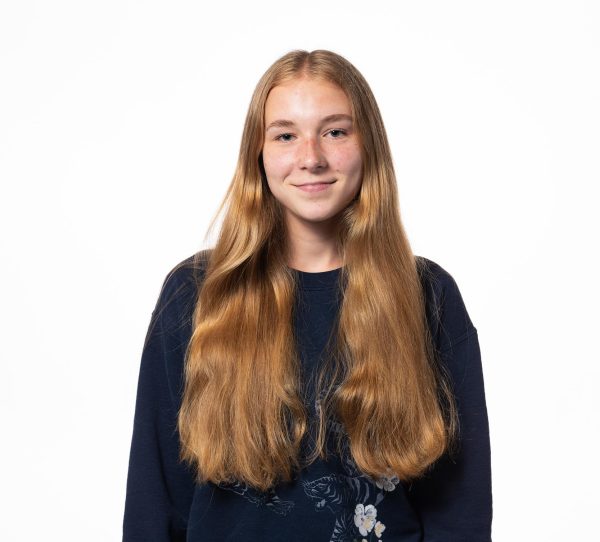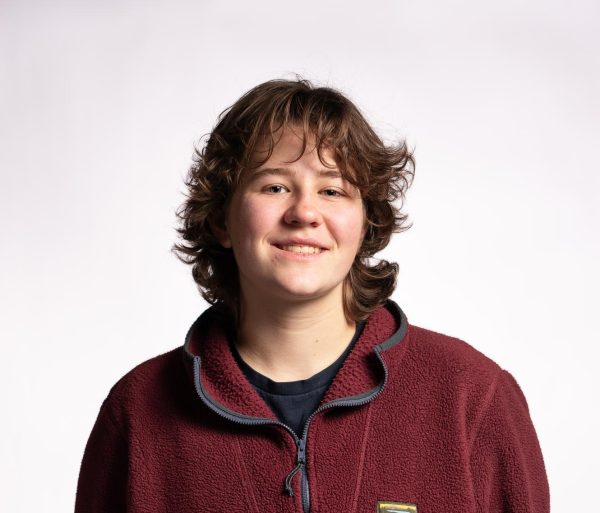There is a certain calm at Tyson Research Center, where the once military base is now gone and full with new lush forest. Senior Gabe Bernstein walks to the huge barrels, peering inside to see the mosquito larvae swarming. His task is to bring them back to the lab, where the possibilities of his discoveries are endless.
During the summer of 2023, Bernstein worked at two different research facilities: The Donald Danforth Plant Science Center in Olivette and Tyson Research Center in Eureka. Bernstein participated in The Shaw Institute for Field Training (SIFT) in the past year. There, he received one week of training and from then on, completed research at Shaw Nature Reserve. This summer, his application was selected to be part of the Tyson Environmental Research Apprenticeship (TERA), where he researched mosquitos and their populations with other high school students at Tyson Research Center.
“The mosquito team, we called ourselves the ‘skeet team’ for short, was very different,” Bernstein said. “We kept these giant colony boxes of mosquitoes in the lab, and sometimes those mosquitos got out, and it got a little bit nasty.”
In the program, students were able to choose what they wanted to focus on in their research. For his particular research, Bernstein studied how many eggs mosquitos laid depending on the type of blood that he fed to them. His hope was for the research to help predict how mosquito populations would grow throughout an area. This would help prevent mosquito-transmitted diseases, such as malaria and dengue fever.
“It was definitely interesting to work with mosquitoes,” Bernstein said. “I’ve never done animal behavior before and experiments went sideways really quickly but all around it was pretty fun.”
At Danforth Center, Bernstein researched for four weeks under an internship. The work was collaborative and research-based. The goal of the project was to find which crop type of sorghum takes the most carbon out of the air, which would hopefully manage climate change to an extent.
“It was pretty interesting to see how real research is done, seeing how that process works, seeing all the different steps and how much work really goes into just collecting data,” Bernstein said.
Senior Ella Marks also worked at Danforth Research Center on the same project as Bernstein, as well as at Tyson Research Center studying the spread of a fungal pathogen in patterns of urbanization. She has been able to meet and collaborate with other researchers.
“The idea of research is a lot prettier than what research actually is,” Marks said. “I love research, but it can be very physically demanding, especially census work.”
Bernstein was only at the Danforth Center for a couple of years, and the research has been going on for longer. A lot of data collection and research will be needed on sorghum before they reach their goal.
“They’d have to examine 100 different varieties of sorghum and see when they grew them over the course of a few years and what the carbon in the ground looked like after a bunch of testing,” Bernstein said. “It’s a very long experiment.”
Bernstein’s work from the past summer helped him establish what he was interested in. Being involved in impactful research from both research programs has transformed his understanding of environmental science.
“It helped me narrow down my focus for what I wanted to go into,” Bernstein said. “[I know] which sides of plant science and ecological studies I didn’t like and which ones I did, so that led me to sustainability.”
Another reason for Bernstein’s interest in sustainability is his hobby of foraging mushrooms. The lasting impacts of climate change have made it difficult for him to not notice a stark difference in mushroom harvest.
“[The amount of mushrooms I found] slowly withered, and it has bounced back a little bit but there were a few years where it was really bad,” Bernstein said. “There’d be no mushrooms. Some varieties I still haven’t seen in a while.”
Bernstein also takes a class called Sustainability Investigations taught by teacher Kelley Krejnik that was introduced to Ladue High School this year.
“We spent quite a bit of time on [climate change], because we talk about how that is one of the consequences of unsustainable behaviors, particularly looking at the impact into, for example, burning fossil fuels,” Krejnik said. “We talk about the costs and challenges of being resilient to changes and impacts that we expect will continue to become increasingly difficult to deal with.”
Krejnik believes that living sustainably is one of the most significant challenges to people. She hopes that the class will bring changes to facing environmental challenges going on in the world today.
“Being sustainable is about being aware of the impact that our choices have on those around us both currently and those who will come after us, and the ripple effect of those things,” Krejnik said.
Krejnik additionally sponsors the club Student Action for Greener Earth (SAGE). Bernstein and Marks are members of the club and work to influence students to live more sustainable lives.
“SAGE focuses on bringing more sustainable practices to our school,” Marks said. “We work on something called the Missouri Green Schools Quest, which is a competition where you make a project focused on sustainability and how you implement that at the school.”
Ultimately, Bernstein’s research and interest in the environment has influenced his educational focus. Finding his career path became more easy after researching over the summer.
“I’ve been interested in environmental engineering for a while,” Bernstein said. “At first, it was more ecological and plant science and then it went into mathematics, so I’ve found a nice niche in between there.”
Marks also explains that Bernstein and her are interested in the same career path. Both of them strongly want to make a difference on climate change and are passionate about sustainability.
“We’ve obviously grown up hearing a lot of bad news, and I want to be part of creating the good news and creating solutions to problems,” Marks said.
Inevitably, the Earth’s environmental changes have led Bernstein to look at not only what it offers, but also how to change the world for the better.
“Seeing our temperatures changing the seasons has inspired me to look at sustainability and climate change, and what the effects of [climate change] are,” Bernstein said.


![Senior Gabe Bernstein works in the school greenhouse. This past summer, Bernstein explored various research opportunities to finally recognize what science fields he would like to pursue. "[Research in the summer] helped me narrow down my focus for what I wanted to go into," Bernstein said. "I know which sides of plant science and ecological studies I didn't like and which ones I did."](https://laduepublications.com/wp-content/uploads/2023/12/Screen-Shot-2024-01-12-at-5.00.53-PM.png)
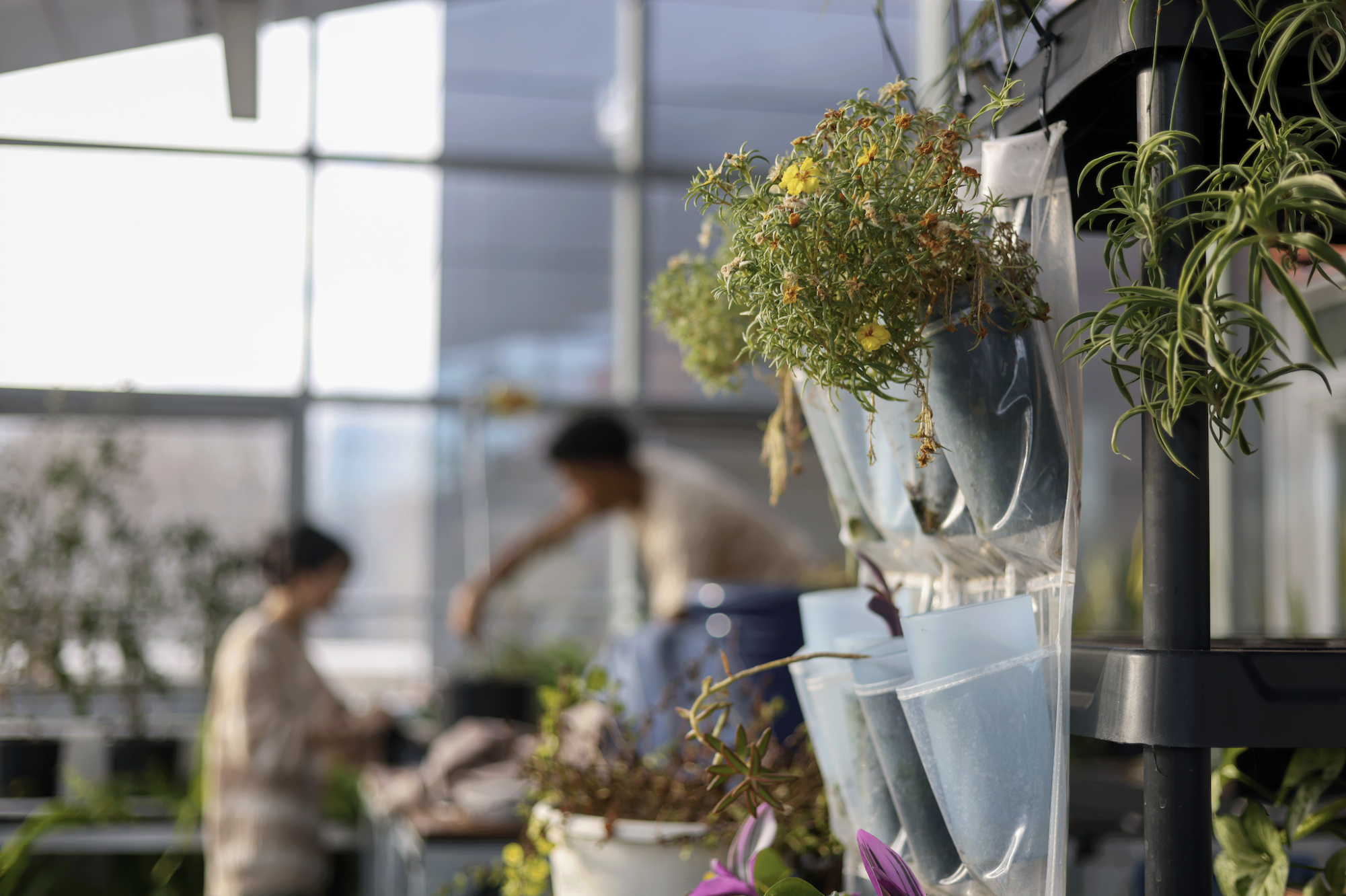
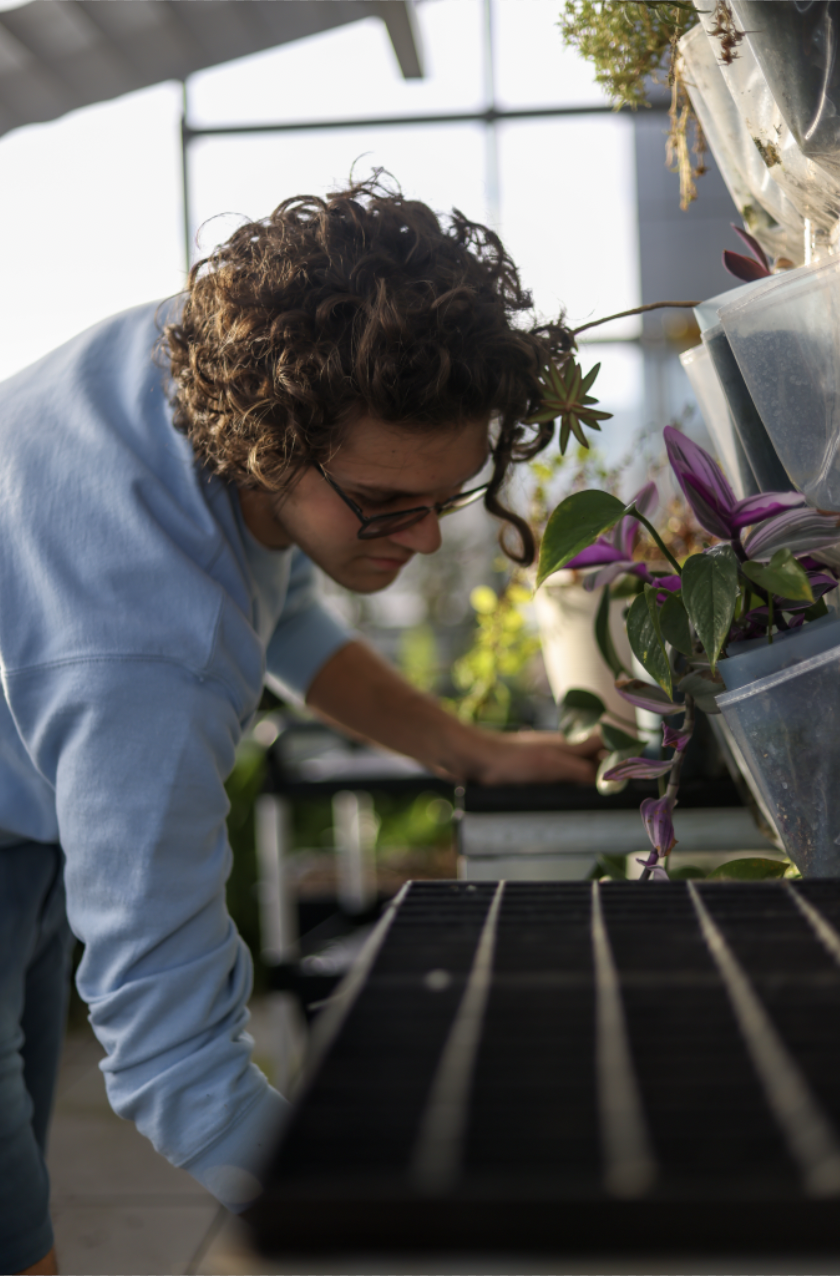
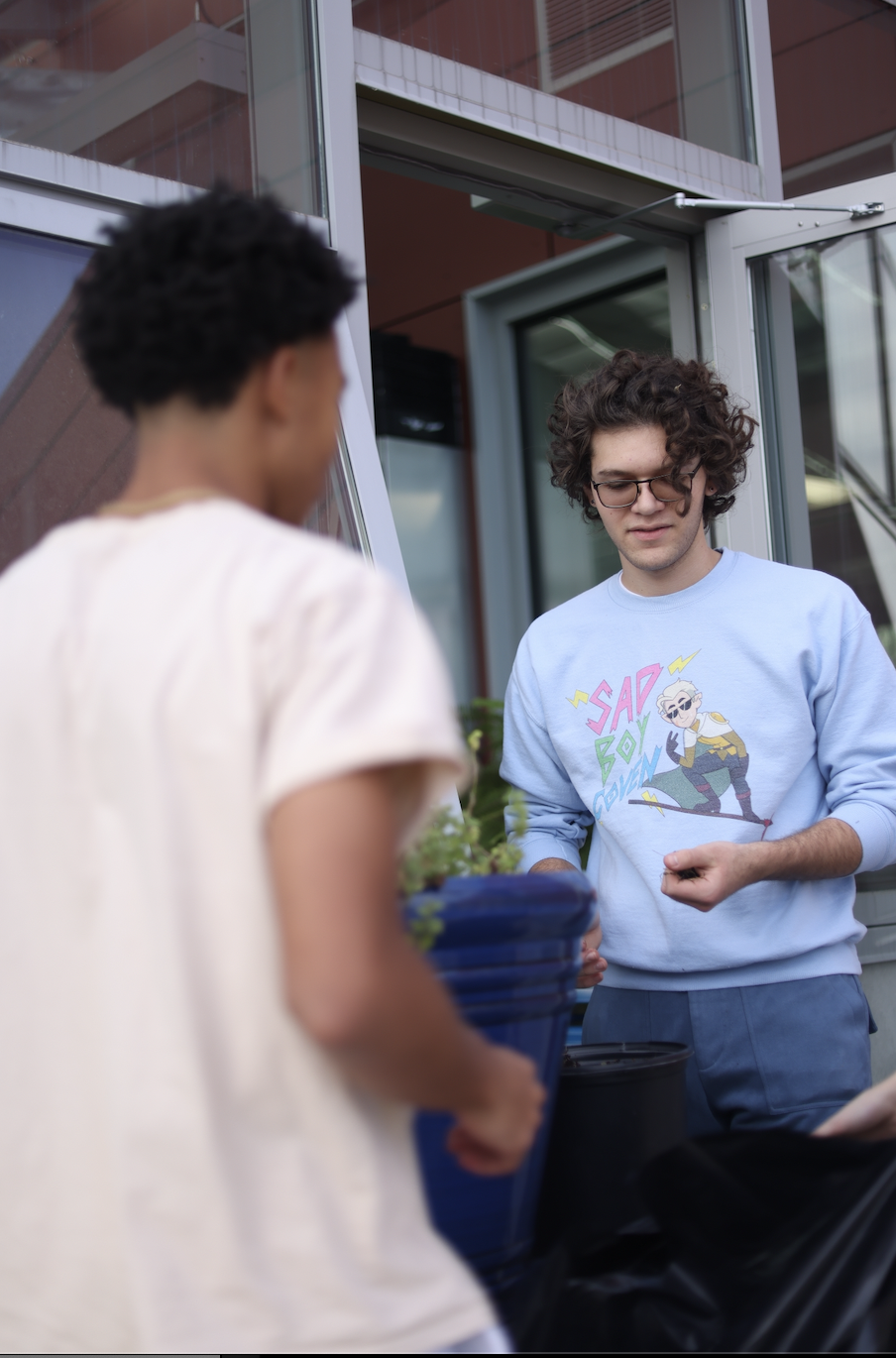
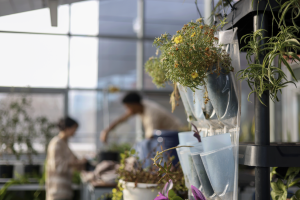
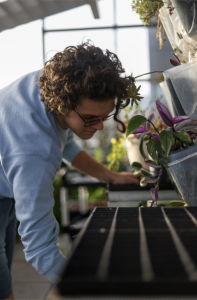
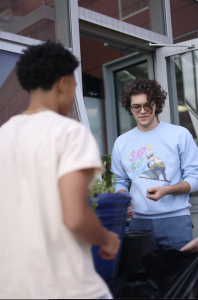
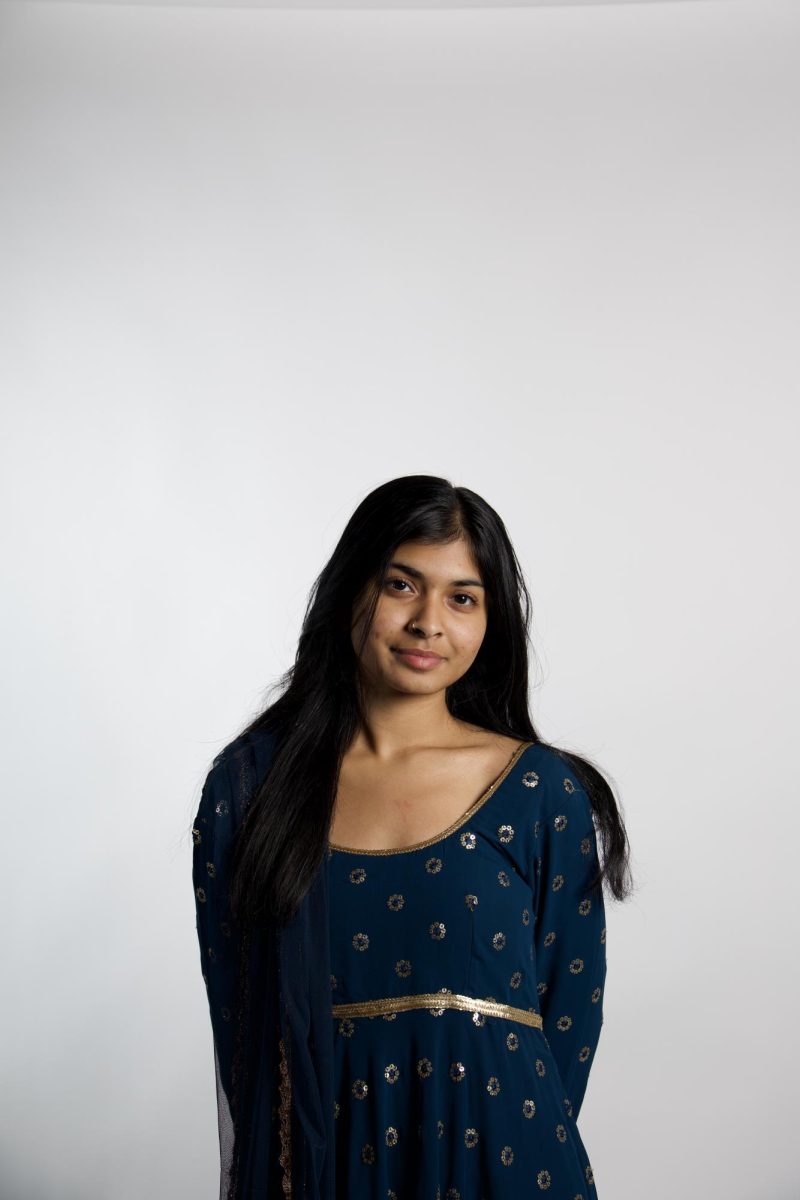

![School resource officer Rick Ramirez sits in his office. He usually spends little time in his office throughout his day of work, focusing on other issues. “Where our students are, I try to be,” Ramirez said. “Sometimes I get off at 2:45 p.m. when nothing’s going on, or sometimes I get off at 10 p.m. [Those are] my hours.”](https://laduepublications.com/wp-content/uploads/2024/12/Hsiao_20241203_ID_RickRamirez_007-799x1200.jpg)
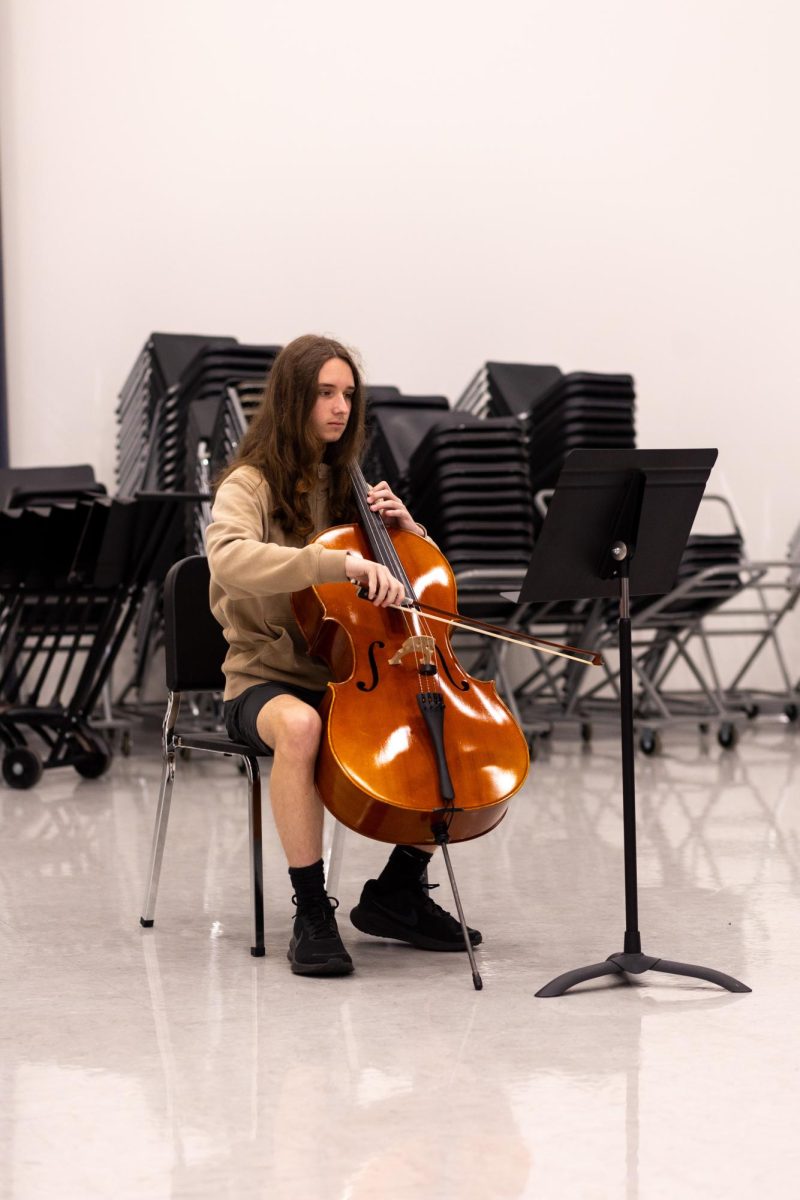
![Reva poses in front of her home and address plaque. After reuniting with her father and grandparents, she has made many new memories and retained her culture. “We have a lot of Indian cooking going on,” Reva said. “I also like telling people about Indian food, mainly because that’s something that really connects me to [Mumbai].”](https://laduepublications.com/wp-content/uploads/2024/12/At-Home-1200x799.jpg)

